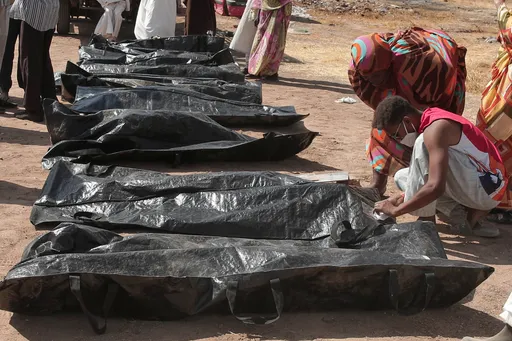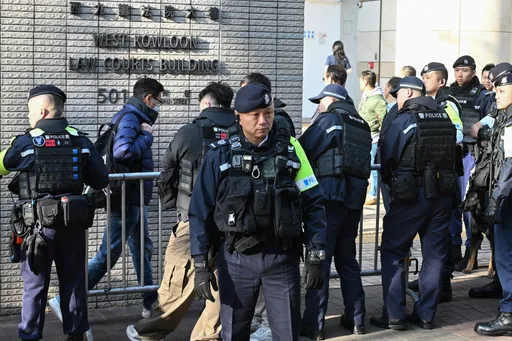It has been more than 500 days since Muhammed Hafizuddin, 24, a Malaysian student, arrived in India to attend a religious congregation organised by Tablighi Jamaat — a transnational Muslim missionary movement — with which he associates.
A religious journey intended for sixty days has now entered the eighteenth month, with Hafizuddin uncertain when the wait to return home will end.
His hopes to leave before last Eid were in vain, due to India’s Covid-19 surge. Locals gifted three new outfits to him during the festivities but none compensated for being at home, he admits.
After he arrived in India last March, the spread of the virus in the country was squarely linked to Tablighi Jamaat by the national media, which led to a countrywide vilification campaign against the organisation. Not only the media, but many leaders of India's ruling rightwing Bharatiya Janata Party (BJP) also blamed Tablighi Jamaat for the outbreak of the pandemic, leading to physical attacks against them across different states.
Soon hundreds of Tablighi Jamaat members were arrested across the country, including foreign nationals. Hafizuddin found himself in jail too.
For six months, he was behind bars in the central Indian state of Bihar, before being released on bail secured by the efforts of his Sathis — “friends” — in the organisation.
Local members of Tablighi Jamaat take care of his lodging and food. To keep himself occupied, Hafizuddin is learning Urdu and leading prayer at gatherings.
"Now I stay in a mosque for a year or so, waiting to go home," Hafizuddin tells TRT World.
"It's been long. My family calls me every day. They have faith that one day I'll come back. I miss them," he added.
Hafizuddin is one among scores of Tablighi Jamaat members who are stranded in India because of the charges they face in India's regional courts for violating Covid-related guidelines.
Various courts across the country have quashed the detention orders of most of the accused, with the High Court of Bombay observing that the foreigners were chosen as “scapegoats” by the government.
“A political government tries to find the scapegoat when there is pandemic or calamity and the circumstances show that there is a probability that these foreigners were chosen to make them scapegoats,” the court said.
The courts also observed that complaints against the foreign Tablighi Jamaat members were filed with “malicious” intentions. More than 1,000 foreign volunteers of the organisation slapped with various penal charges were subsequently released.
For a few like Hafizuddin though, the separation from his family still continues.
Eleven Indonesian nationals jailed with him in Bihar pled guilty to the court to leave India at the earliest. However, Hafizuddin went on trial to prove the allegations against the group were “wrong”.
"I'm very disappointed with the management of the Indian government," he said.
Faisal Allam, Hafizuddin's lawyer, told TRT World that the delay in court proceedings is leading to the extended stay of foreigners in India.
"Recently there has been a change in the roster of the court, which affected the judge looking after our case. So in spite of the fact that the case was heard in its entirety by the earlier judge, it will now be heard again by another judge to whom the case has been transferred," Allam said.
"The case may be heard within a matter of two weeks and it may take two to three court dates for the case to be decided."
According to Allam, the Malaysian Embassy is “keeping a regular track of the case going in the Patna High Court”.
Apart from Hafizuddin, 18 Thai nationals associated with the Tablighi Jamaat are also stuck in India's largest state Uttar Pradesh for the last year and a half, as they continue to await judicial clearance.
"We are in distress," 70-year-old Daha Dasae conveyed to TRT World through Jameel Ahmed, a lawyer who represents nine Thai nationals in Uttar Pradesh’s Hapur district.
“These people are from poor backgrounds and most of them are old,” Ahmed told TRT World. “They were jailed for about two months in a jungle. Quarantined in unsafe rooms.”
"We spend time praying. We want to go back," Dasae added.
Mohammed Shakeel, a lwayer and coordinator of legal aid in Uttar Pradesh for detained Tablighi Jamaat members says the Thai nationals have been booked under “distinct and grievous” charges, which is delaying their return home.
"They have been booked for having invalid visas and passports. The Royal Thailand embassy has written a letter to the court saying their visas and passports are valid. Yet, the case is lingering," Shakeel told TRT World.
"Another problem is there were no translators in court to make their statement. They don't speak Hindi or English," he added.
Responding to TRT World’s request for comment, the Thailand Embassy cites that its ambassador took charge recently and needed to take stock of the situation.
Indian Tablighi Jamaat members faced charges under sections of the Indian Penal Code for violations like “disobedience to order duly promulgated by public servant” and “public nuisance”. The police also charged the chief of a Delhi-based Tablighi Jamaat group under a sections for “culpable homicide not amounting to murder”.
"We have ensured that most of the people are back to their home countries. But because of certain technical issues, some of them are still stuck. Hopefully, we will get them out soon too," Fuzail Ahmed Ayyubi, a counsel for the Tablighi Jamaat in India's Supreme Court, told TRT World.
“Their respective embassies are constantly in touch with me, I am their counsel. But their roles are limited to arranging flights and getting them back home. But prior to that, we need to conclude the judicial process”.
Critics of the Indian government blame the BJP for singling out Tablighi Jamaat for spreading the pandemic in the country and lodging “fake” cases against them.
“The vilification is part of ongoing anti-Muslim sentiment peddled by India’s Hindu nationalist regime,” says Shamseer Ibrahim, national president of Fraternity Movement, a student political organisation.
“The Tablighi Jamaat witch-hunt by the media and state reflects the Islamophobia in Indian society.”
The Tablighi Jamaat also termed the government's decision to file cases against its members as discriminatory and religiously motivated. Its Headquarters in New Delhi is still closed due to “objection” by the central government in a matter pending in Delhi High Court.
Apart from nineteen foreign nationals, dozens of Indian citizens are also awaiting judicial proceedings.
“Some FIRs [First Information Report] on Indians are also remaining. In Delhi, there are cases against families who hosted foreign women and Imams who sheltered foreign nationals in their mosques when the lockdown was announced,” Tablighi Jamaat spokesperson Saif Ahmad told TRT World.
"It’s conclusive that we are not responsible for Covid spread in India. It’s been proven now in courts. But we are still bearing the brunt," he added.























